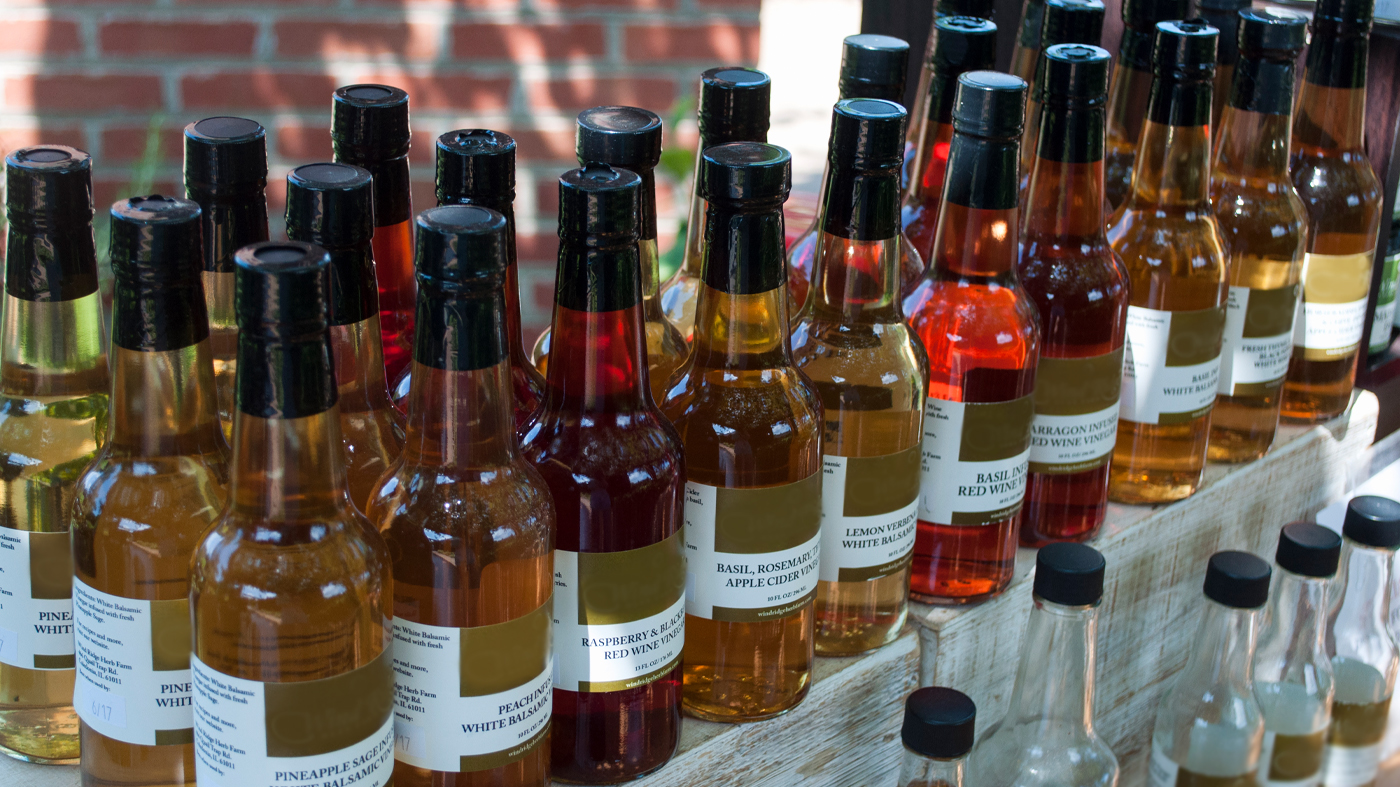

Tips & Techniques
Making Herb Vinegars
Your herbs are flourishing, but you know the first frost is about to hit. How can you bank up herbal flavor and save it to enjoy all winter long? One popular and simple method for preserving herbs is to infuse them into vinegars — a simple way to keep herbs at their summer's peak of flavor.

A few dashes of herbal vinaigrette can liven up tender salad greens, and herbal vinegars can provide the basis for meat, chicken, or vegetable marinades perfect for the grill. With herb vinegars, you can please your palate and ease your meal preparation for months to come.
White and rice vinegars are very mild-tasting, making a flavorful base that doesn't overwhelm such delicate herbs as dill and tarragon. Stronger herbs such as rosemary and thyme stand up well to cider or wine vinegar. Use white vinegar to take advantage of herbs that color the vinegar; opal basil, for example, turns vinegar pink or lavender, and borage flowers turn it blue.
Single-herb vinegars such as tarragon or basil can become staples in the kitchen, but there are also endless combinations to create, depending upon your tastes. Add peppercorns and garlic or shallots to favorite herb vinegars for a complete salad flavoring. Vinegar made with hot peppers, garlic, and cilantro makes a great marinade for Southwestern-style chicken when combined with a bit of olive oil. Mint, a hint of honey, and cardamom or anise seed in rice vinegar makes a delicious and different vinegar to sprinkle on melon or strawberries. A rosemary-oregano vinegar combines well with olive oil for a traditional Italian marinade.
To make your vinegar, gather several large jars with lids, a basket, and scissors for collecting the herbs and approximately two gallons of vinegar. Simply bruise a handful of carefully washed and towel-dried herbs of your choice, put them into a jar and pour cold vinegar over them. Set the closed jar in a warm pantry or on a sunny windowsill for three to four weeks. After this time, taste the vinegar to make sure it is strong enough, strain it into decorative bottles and add a sprig or two of fresh herbs for decoration. If you are making several kinds, be sure to label them immediately because the herbs may be unrecognizable later on.
For faster flavoring, heat the vinegar and pour it over the herbs. After two or three days, the vinegar will be flavored, and you can strain and bottle it. Enjoy!

